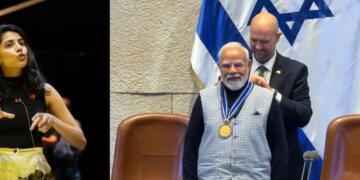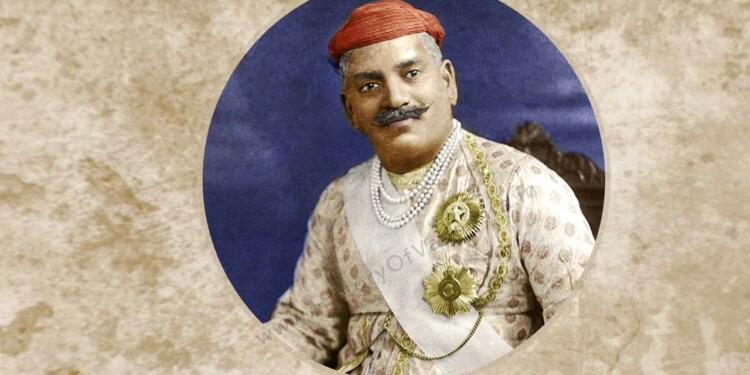Bharatvarsh has been time and again blessed with Yugpurush’s that have not only stabiltised the nation in tumultuous times but also shaped better future for Indic civilisation. At different time period, innumerable rulers have contributed significantly in making India’s history glorious with their skillful efficiency and strategy. This article is a humble tribute to the great, Raja Sayajirao Gaekwad. He was born in a simple farmer’s family and later went on to become the king of Baroda State.
The Chronicles of Raja Sayajirao
Gopal Rao Gaikwad was born on March 11th, 1863 in Nashik’s Kulvane village. The Baroda royal family was distantly related to his father, Kashi Nath. The royal couple had been childless. On May 27, 1875, Maharani Jamuna Bai, the widow of Maharaja Malhar Rao Gaekwad of Baroda, adopted Gopal Rao and thus got the name Sayaji Rao Gaekwad.
Along with governing Baroda state, Raja Sayajirao Gaekwad ensured its progress and prosperity. He carried out various social and educational reforms. He was also hailed as connoisseur and patron of arts. Consequently, under his able governance, Baroda became a center for scholars and artists. He also built the Baroda Museum and its gallery, which display his priceless jewelry collection.
Also read: Tragic neglect of Pandurang Khankhoje: India’s Green revolution is the finest example of brain drain
On November 28, 1881, the Queen coronated Sayajirao Gaekwad at the age of 18. During his rule, he first enhanced the economic standing of the princely state of Baroda. He created public welfare programmes in 1883 by appointing consultants and reformed the judicial system.
He had a special focus on education and in 1893, he made primary education compulsory. He was a patron of educational, social, cultural and arts. He gave a scholarship to Bhimrao Ambedkar to go abroad for studies.
Further, Sayajirao Gaekwad provided assistance to many great men and organizations of the country. He was a vocal supporter of freedom fighters including Dadabhai Naoroji, Namdar Gokhale, Lokmanya Tilak, Mohandas Karamchand Gandhi, Mahatma Phule, Rajarshi Shahu, Dr. Ambedkar, Madan Mohan Malviya, Karmaveer Bhaurao, Veer Savarkar and Maharshi Shinde.
Sayajirao Gaekwad provided opportunities for higher education by giving scholarships to needy and poor students. He had a great contribution in the social sector and prohibited purdah system, banned the sale of daughters, supported inter caste marriage, made laws for inheritance rights to women, prohibited untouchability, allowed widow remarriage and right to divorce.
Also read: Justice Hans Raj Khanna: A judge who stood firm in the face of adversity
Sayajirao Gaekwad studied the best of governance practices from all over the world. Maharaja Sayaji knew very well that education and science are the only means of progress and change.
On 20th July, 1908 Maharaja Sayajirao Gaekwad established Vijaya Bank, which is now known as Bank of Baroda, in Gujarat. Baroda is well known for its artistic and observable architecture, palace, object museum, art method, Shri Sayaji Hospital, Nazarbagh Rajwada, college buildings etc. which was established by him. His books, speeches, letters are the priceless treasure of the country.
Support TFI:
Support us to strengthen the ‘Right’ ideology of cultural nationalism by purchasing the best quality garments from TFI-STORE.COM


























